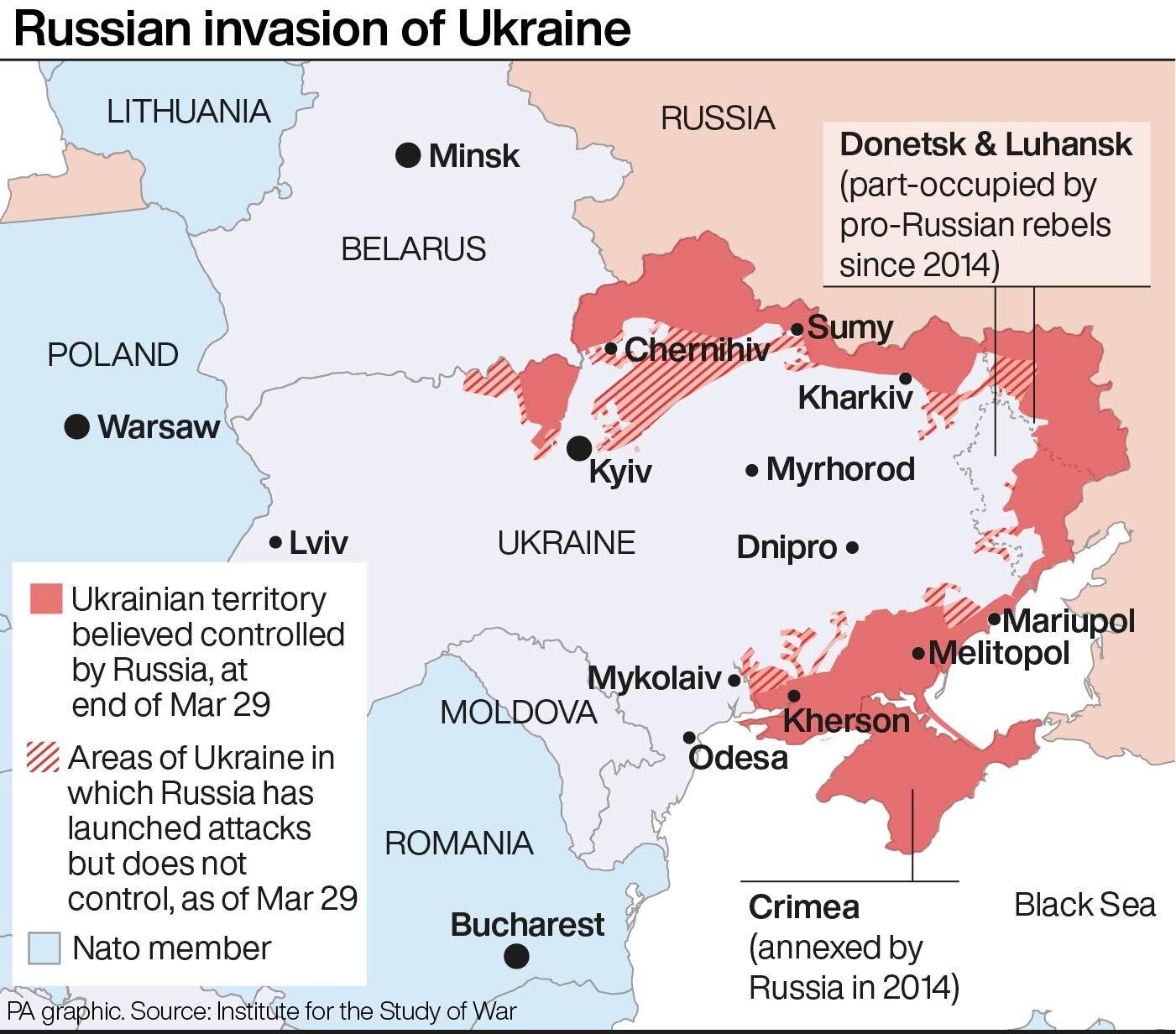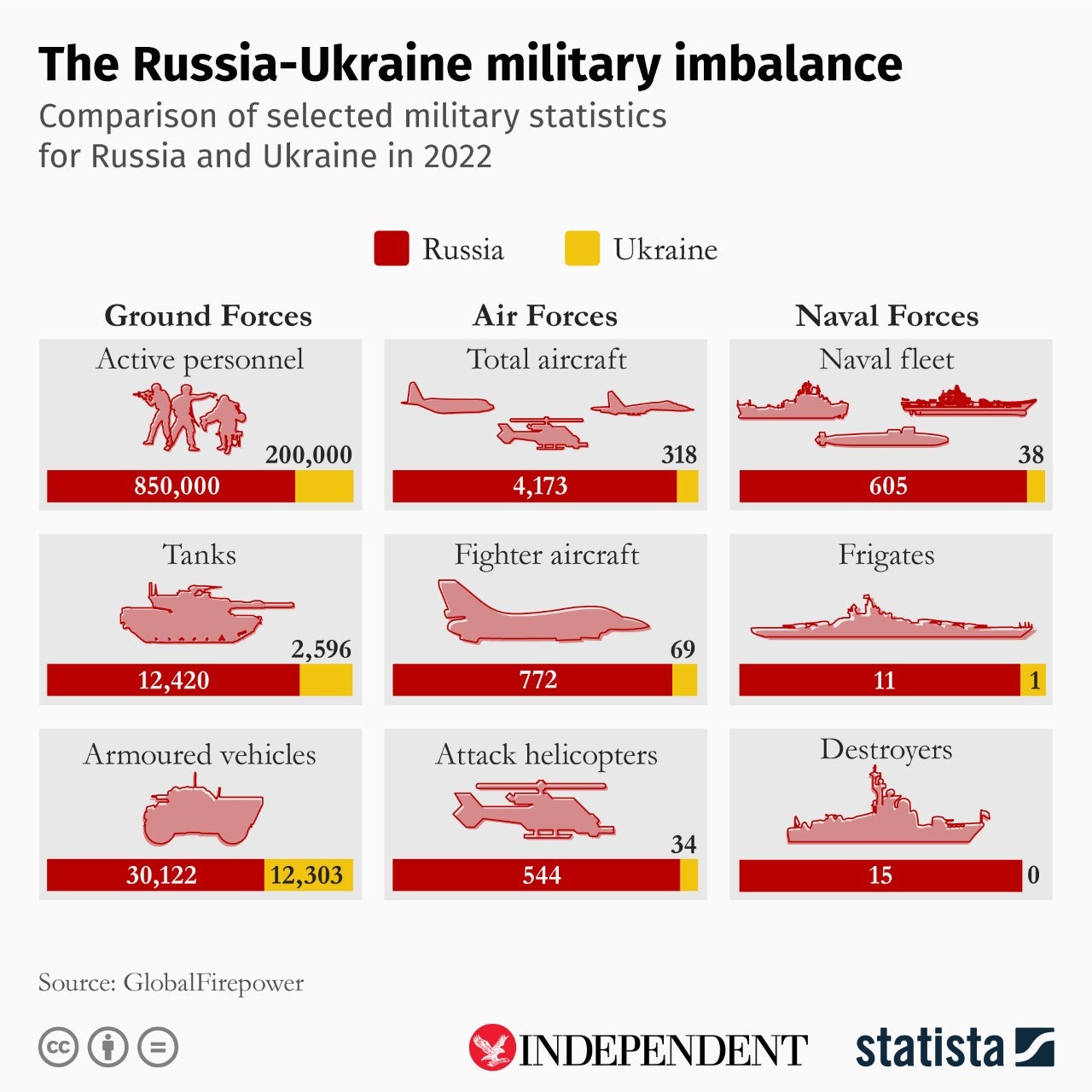War crimes: How are they defined, investigated and punished?
International Criminal Court’s chief prosecutor has already announced an investigation into Russia’s conduct in Ukraine as invasion continues and atrocities are alleged in Bucha
Karim Khan, chief prosecutor at the International Criminal Court (ICC), announced just four days into Russia’s war in Ukraine that he would open an investigation into alleged war crimes “as rapidly as possible”.
“I am satisfied that there is a reasonable basis to believe that both alleged war crimes and crimes against humanity have been committed in Ukraine,” he said in a statement on the decision.
US president Joe Biden has since branded Russian president Vladimir Putin a “war criminal”, drawing an angry repsonse from the Kremlin, although the accusation has seemingly been validated by reports that 20 civilians were left dead in the street in Bucha, some with their hands bound, as satellite imagery revealed the presence of a mass grave.
Ukrainian president Volodymyr Zelensky did not hestitate to label the killings an act of genocide.
Yevheniia Filipenko, Ukraine’s ambassador to the UN, had previously alleged that Mr Putin’s invading forces had been “targeting kindergartens and orphanages, hospitals and mobile medical aid brigades”, saying the aggressor’s apparent strategy of targeting civilians may lead to acts that constitute war crimes by violating the terms of the Geneva Conventions.
Those four treaties and three protocols were signed by 196 countries in 1949 in the aftermath of the Second World War to establish international legal standards for humanitarian conduct in warfare, defining the basic rights of prisoners of war (both civilian and military) and securing protections for the wounded and for non-combatants.
Ms Filipenko’s accusation followed Amnesty International denouncing Russia’s use of cluster munitions in an attack on a pre-school in Okhtyrka in Sumy oblast, which the NGO said were fired from a 220mm Uragan rocket, killed three people and “may constitute a war crime”.
More than 100 countries have pledged never to use such weapons under the Convention on Cluster Munitions, including the UK, but neither Russia nor Ukraine are parties to the agreement.
The investigative website Bellingcat has since reported “multiple examples” of cluster munitions being used indiscriminately in Ukraine and harming civilians.
“As the fighting begins to move further into urban areas, there is a danger there could be significantly more examples of such usage of cluster munitions,” it warned.
Earlier, UK foreign secretary Liz Truss had warned that Russia would use “the most unsavoury means” to conquer Ukraine – with experts widely agreeing that its tactics are likely to become more brutal as the situation on the ground becomes more desperate and the walkover Mr Putin had expected fails to materialise in the face of the courageous resistance being mounted by the Ukrainian people.
That warning appears to have been entirely borne out by susequent events.

It is feared that Russia could ultimately restort to the use of strategic nuclear weapons, after Mr Putin placed his forces charged with their use on “high alert” in response to international economic sanctions and what he claimed was aggressive rhetoric from Nato.
The ICC, based in The Hague in the Netherlands, describes itself by saying that it “investigates and, where warranted, tries individuals charged with the gravest crimes of concern to the international community: genocide, war crimes, crimes against humanity and the crime of aggression.
“The court is participating in a global fight to end impunity, and through international criminal justice, the court aims to hold those responsible accountable for their crimes and to help prevent these crimes from happening again.”
It defines war crimes as “grave breaches of the Geneva Conventions in the context of armed conflict and include, for instance, the use of child soldiers; the killing or torture of persons such as civilians or prisoners of war; intentionally directing attacks against hospitals, historic monuments, or buildings dedicated to religion, education, art, science or charitable purposes.”
Article 8 of the 1989 Rome Statute, the ICC’s founding treaty, lists 11 war crimes it considers “grave breaches” of the Conventions in conflicts between nations, namely:
- Willful killing
- Torture
- Inhumane treatment
- Biological experiments
- Willfully causing great suffering
- Destruction and appropriation of property
- Compelling service in hostile forces
- Denying a fair trial
- Unlawful deportation and transfer
- Unlawful confinement
- Taking hostages
The ICC’s Office of the Prosecutor is responsible for conducting investigations and prosecutions into alleged war crimes in the event that a situation is referred to the court by a state party or the UN Security Council or at his or her own instigation on the basis of information received from other sources, such as individuals or non-governmental organisations.
Mr Khan, a British barrister, has held the office since 16 June 2021 and previously led the UN’s special investigative team probing crimes carried out by the Islamic State terrorist faction in Iraq.
“I have already tasked my team to explore all evidence preservation opportunities,” he said in his statement. “The next step is to proceed with the process of seeking and obtaining authorisation from the Pre-Trial Chamber of the Court to open an investigation.”
Mr Khan further explained that he intends to appeal for the support of all ICC state parties, for additional budget, voluntary contributions and the loan of personnel, adding: “The importance and urgency of our mission is too serious to be held hostage to lack of means.”
Should a charge be made against a particular person as a result of his investigation into the facts on the ground, the accused will then face trial in The Hague, where they are presumed innocent until proven guilty beyond reasonable doubt, and at which a three-judge panel presides to consider the case and is compelled to offer a full and reasoned statement explaining their eventual verdict.
Trials can be held in public or behind closed doors, depending on which scenario is in the best interest of any witnesses appearing to give testimony.

Anyone found guilty of a war crime is likely to be sentenced to long-term imprisonment, with 30 years or life behind bars common depending on the severity of the offence. The court does not have the capacity to impose the death penalty.
Only the 123 nations that have agreed to and signed the founding Rome Statute are expected to adhere to the authority of the court.
Although neither Ukraine nor Russia are among those member states, the former has twice said it accepts the court’s jurisdiction, empowering Mr Khan to investigate any crimes alleged to have taken place on its soil during the present conflict.
The ICC previously conducted a preliminary probe into crimes linked to the violent suppression of pro-European protests in Kyiv in 2013-2014 by the pro-Russian Ukrainian government of the time and examined allegations of crimes in annexed Crimea and in eastern Ukraine, where Russia has backed separatist rebels for the last eight years.
The Independent has a proud history of campaigning for the rights of the most vulnerable, and we first ran our Refugees Welcome campaign during the war in Syria in 2015. Now, as we renew our campaign and launch this petition in the wake of the unfolding Ukrainian crisis, we are calling on the government to go further and faster to ensure help is delivered. To find out more about our Refugees Welcome campaign, click here. To sign the petition click here. If you would like to donate then please click here for our GoFundMe page.
Join our commenting forum
Join thought-provoking conversations, follow other Independent readers and see their replies
Comments

Bookmark popover
Removed from bookmarks